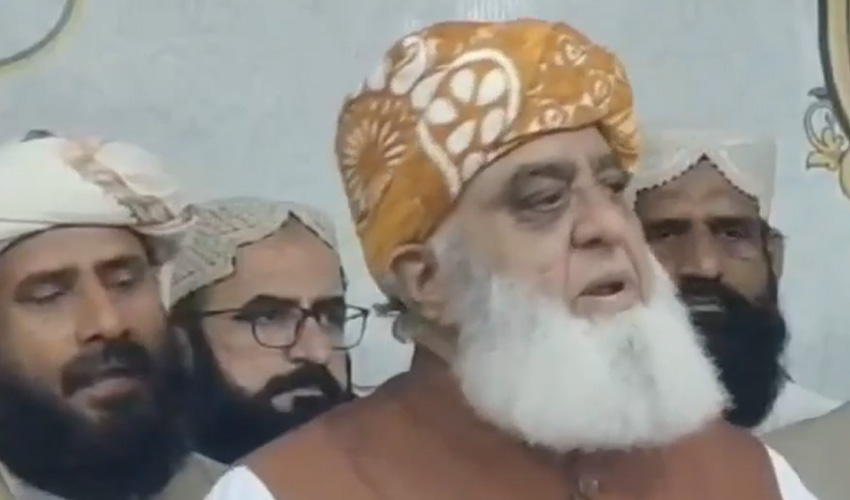Maulana demands govt resign over 'what happened in Islamabad'
JUI-F chief says not in favour of governor's rule in Khyber Pakhtunkhwa

Stay Connected, Stay Informed - Follow us on Whatsapp for Real-time Updates!

Jamiat Ulema-e-Islam-Fazl (JUI-F) chief Maulana Fazlur Rehman has dismissed the idea of imposing Governor's rule in Khyber Pakhtunkhwa, saying he was unaware of any plans to do so.
Speaking to the media in Khanpur, Maulana Fazlur Rehman said: "While the constitution provides a framework for such Governor's rule, the current conditions are not favourable for doing so," adding he was not in favour of the step.
He emphasized that he does not support creating friction between the provincial and federal governments.
The JUI-F chief condemned recent events in Islamabad post the PTI protest, stating, "What happened in Islamabad was unfortunate, and I strongly condemn it." He also criticized the government's handling of protests at D-Chowk. "The government should have resigned due to the situation at D-Chowk."
Also Read: ‘Govt has not consulted PPP over ban on any party,’ says Bilawal Bhutto
Fazlur Rehman clarified that he condemned both the treatment meted out to PTI workers and their protest in Islamabad. He also expressed his disapproval of banning any political group. "I am not in favour of banning any political party. The courts will decide the fate of PTI’s founder," he remarked.
The Maulana also highlighted the delay in implementing constitutional amendments, particularly the pending signature on the religious seminaries clause by the president. "We will not remain silent until the clause is signed," he warned.
Also Read: Asif suggests setting aside political differences, uniting for nation
Touching on international influences, he stressed that Donald Trump would not decide Pakistan’s future. "We cannot do politics in Pakistan due to the influence of external forces," he alleged.
Maulana Fazlur Rehman further questioned the credibility of the last general elections, alleging that they were "managed", and the governments were formed against public opinion.


.jpeg)

.jpeg)



.jpeg)


.jpeg)
